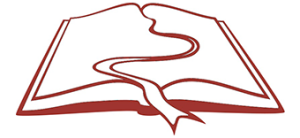Radical Candor
Scylla and Charibdis for academic leadership:
Why successful academics need breaks to be able to communicate with radical candor.
Scylla and Charibdis for academic leadership:
Why successful academics need breaks to be able to communicate with radical candor.
If you are like most academics, you have probably experienced the frustration of a to-do list that is growing longer rather than shorter as time passes. And if you are like me, this tempts you to work even harder, ignoring your tense shoulders and tired brain. Lees meer →
In our first talk, many academics warn me that they are rather autonomous. Intractable and self-willed, a.k.a. notoriously headstrong. They are not beside the point. Also HR managers, career advisors at universities, my coaching colleagues in other industries often wonder out loud whether my academic clients aren’t difficult to coach. Lees meer →
I get it: you are smart. You got a PhD. You landed a tenure track position or even tenure — although you suspect that was due to luck more than intellectual merit. Anyway, from the outside your life look perfectly successful. You have a wonderful partner, your children are doing great, and your academic career is well underway towards professorship. How come your life does not feel so fabulous on the inside? Why do you feel so lonely? Why do you feel different and not understood? Lees meer →
Many academics worry whether they ‘have it in them’ to succeed in academia. Consider Alise. Five years ago she completed her PhD. Her supervisor and colleagues in the field where enthusiastic about her talent for research and the chapters of her thesis have all been published in well-ranked journals.
Alise felt confident and gladly accepted a postdoc abroad. This turned out to be a jumping board for a tenure track position closer to home. She has now been working there for several years, but her confidence and enthusiasm are waning. Lees meer →
“What are you going to do with your degree in philosophy?” Every philosophy student sooner or later hears this cliché question. And it is not unfamiliar in other fields from Humanities and fundamental sciences. The stakes are even higher after a PhD in said disciplines. Your slim chances at work appear narrowed down to the academic job market. But statistics are compelling: more than 75% of recent PhD holders do not find academic employment. Go figure.
Let’s face it. As exciting as science can be, sometimes it is just tedious, boring, taxing. When you are plodding through your data, drudging over a pile of exams, or pegging away at your PhD, it is difficult to feel that enthusiastic flow. You are working hard, draining your energy, feeling low. Naturally, you do not want to be in that space of negative energy. So you look for an escape. Lees meer →
Laura sits down at her kitchen table. A welcome quiet evening between days filled with parties with family and friends over the holidays. New Year’s Eve: a traditional time of year to look back at the past year and formulate resolutions for the new year. Laura knows the power of being mindful of your successes. She is proud that she submitted her PhD thesis manuscript last year and got approval for it.
As she starts to look to the year ahead, her positive thoughts fade quickly. Lees meer →
“Since my holiday I have been at work again for a couple of days. I notice that I start to work really hard when I have to do stuff that I find annoying. Chores like writing the final report for NWO, or revising a manuscript. I know I have to do it, and I have a deadline. Automatically I stop working soft, because if I work hard the chore will be done sooner. But with the way I am currently tackling these chores, afterwards I am exhausted and have a headache. How can I stop working hard in such situations?”
A little apprehensively he approaches me as I am getting my coat after a workshop on Working Soft in research. Quietly he asks: “How do I improve my focus and manage my stress? Call me Chris. I work in this open office space with 12 fellow PhDs and Postdocs. When I read, write, or analyze data at my computer people often interrupt me. I like to help my colleagues out, but I also need to finish…”
